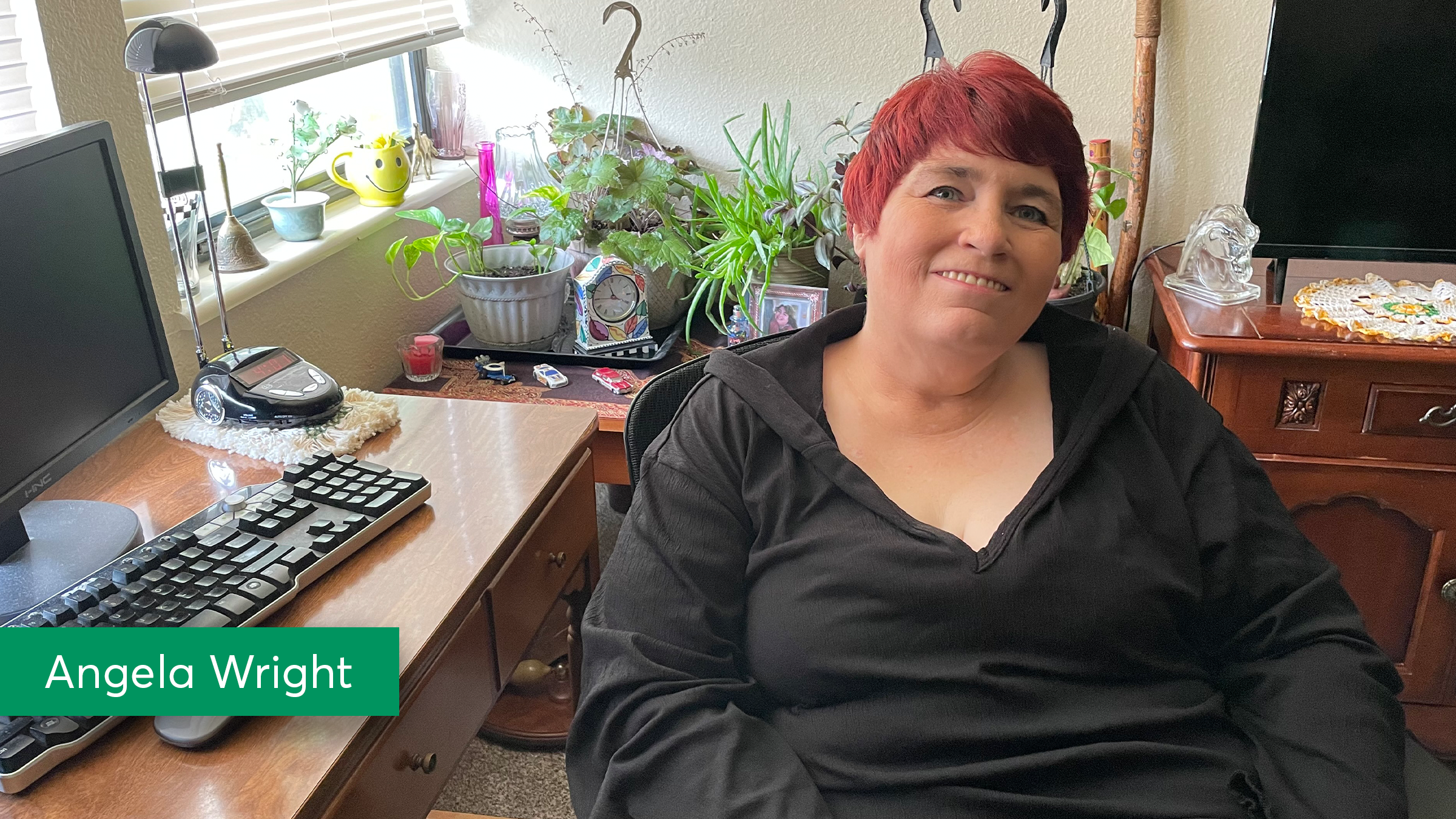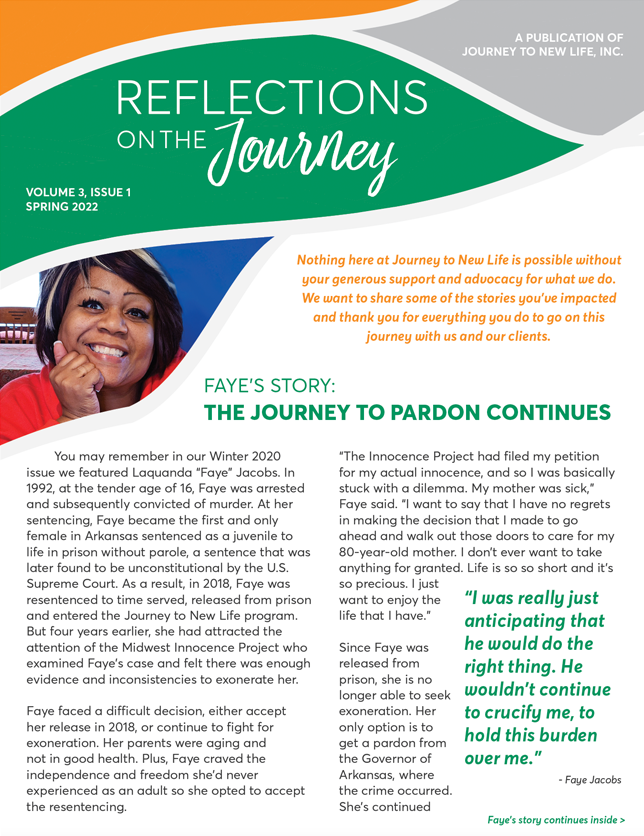
Angela Wright had never had any interaction with law enforcement or the justice system. In fact, she came from a family of cops. Her mother, her uncle and one of her brothers were police officers. She says she didn’t even drink alcohol. But, then in her 40s she was diagnosed with cancer and had to endure extensive cancer treatment and chemotherapy. Like many cancer patients, her health care providers prescribed opioids to deal with the second-level pain related to these treatments. Then, one day, they just stopped prescribing the pain medications — cold turkey. At the time, she says she wasn’t anxious or panicked about that. She was simply excited and optimistic to be considered “cancer-free.”
Angela didn’t even realize she had become addicted. “I ran out of pills later on in the week. I started getting sick, and I didn’t understand why I was getting so sick. I thought something was wrong and that maybe they were wrong about the cancer,” she said. “I was going back to the doctor saying, ‘am I okay?’ Because I felt like I was dying.”
She wasn’t. Angela was going through withdrawal. For help, she turned to friends and neighbors, and she says they introduced her to an environment that allowed her to deal with her withdrawal symptoms by feeding her addiction. Not surprisingly, that didn’t end well. Angela was arrested in 2014 with two prescription boxes of Mucinex D and Ziploc bags. Missouri was cracking down on opioid abuse. According to the CDC, drug overdose deaths nearly tripled between 1999 and 2014, and in 2014, among the 47,055 drug overdose deaths in the U.S., 61% involved an opioid. Missouri was outranking many other states.
Angela says she relied on her public defender throughout the legal process, and she didn’t really understand what was happening or what the consequences and long-term impact would be of a plea deal that the attorney was recommending she sign off on.
“I wasn’t even allowed in the courtroom by the attorney,” she said. “He had me sit out in the waiting area, and the entire case was settled without me in the courtroom, and he just came out and said, sign this paperwork. I found out afterwards what all this exactly meant for me. The prescriptions had my name and my prescription on them, and I had never even failed a UA (urine analysis), not one throughout all of this.”
As part of the plea deal, Angela ended up serving nearly two years between county jail and prison. But that was only the beginning of what would become her real sentence.
While in prison, she got sick again. Her cancer had returned. Though she wasn’t able to start treatment in prison, she connected with Journey to New Life shortly after her release. She was accepted into the program and moved into Journey House where she found a safe haven to begin a new round of cancer treatment. Unfortunately, the treatment began causing damage to her kidney. She’d already had one kidney removed as part of her initial treatment. Now, her remaining kidney was at risk. She needs a kidney transplant to continue with her cancer treatment. But, since she has a drug distribution conviction as part of her plea, she’s ineligible for the national transplant list. None of her family members who have been willing to help are a match.
Angela also doesn’t qualify for HUD housing assistance or food stamps so she’s grateful that she has Journey. “Journey to New Life has been my miracle,” she said. “They gave me hope. I wouldn’t know what to do without what Journey has done.”
Journey is a very special program. That’s why I love working with them. They make a difference in the community and for the people that walk through their doors. I think people are forever changed by their experience with Journey.
— Angela Wright
Angela accepts responsibility for the mistakes she made, but she says she didn’t understand the severity of the consequences of her plea deal given her health situation.
“I’m not saying I didn’t do wrong when I ended up going down that road, but I never hurt anyone. I never kicked in anybody’s door. Never robbed anybody. I didn’t kill anyone. I didn’t beat anyone up,” she said. “I didn’t do anything like that, and compared to what other people did, it just seems so out of balance. I don’t even have the right to try to fight to live because I am not even worthy of a transplant. I am a subhuman to the government is how I feel. I’m not worth anything. I don’t deserve food. I don’t deserve housing. I don’t deserve a chance to live. I don’t deserve a chance to make my life right or to make my family’s lives right. I don’t think that’s right.”
Angela has been told that unless she can get a kidney transplant she only has one to two years to live. It’s not an optimistic prognosis by any means, and, unfortunately, she’s been advised that there’s nothing she can do about the conviction on her record. Yet, she still finds a way to stay positive. “It was devastating news, but I kind of laid that to rest, and I’m like, okay, well then I just have to move forward,” she said. “I’m trying to do the best I can every day and come up with 10 reasons a day to smile, if I feel like it or not. And I try to always help the person next to me because I feel like I got so much help that I need to pay it forward.”

